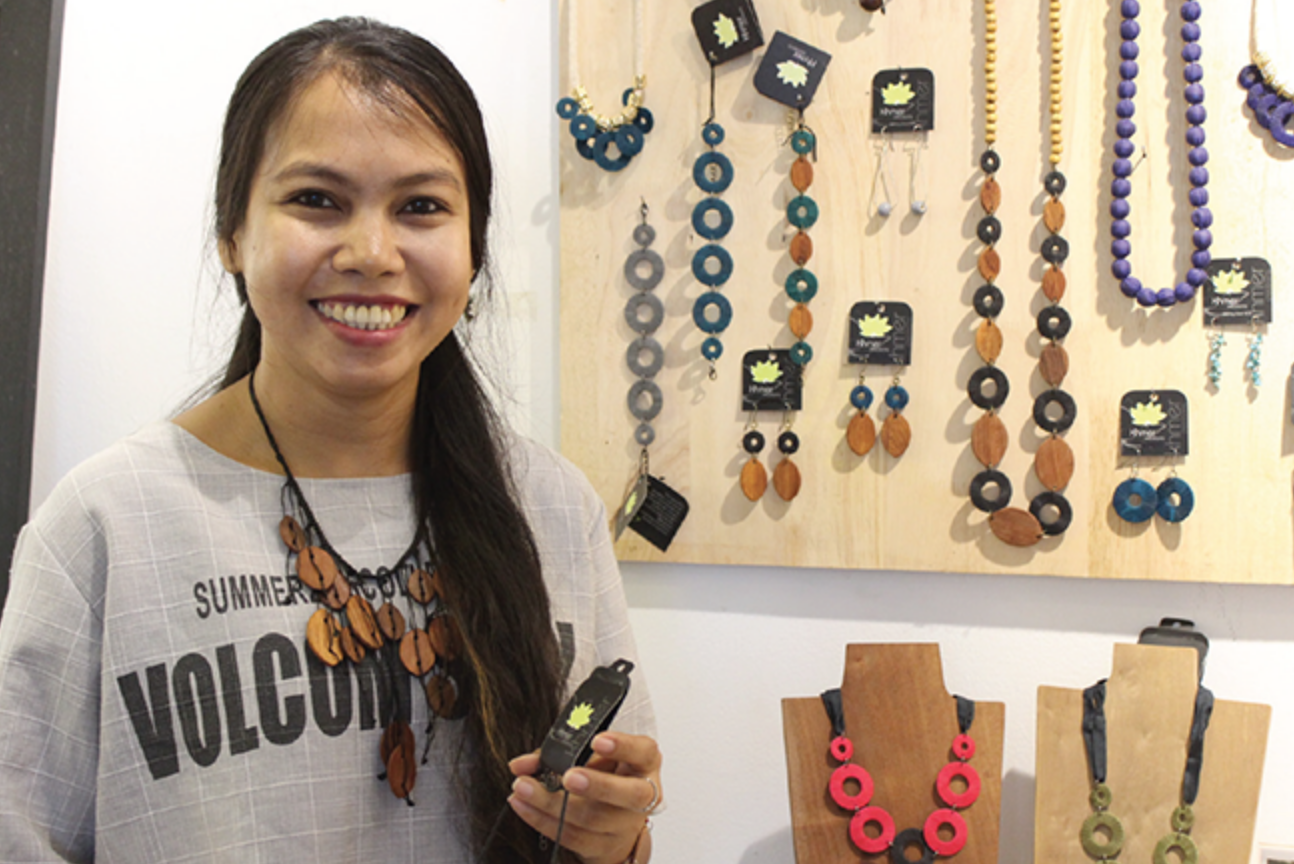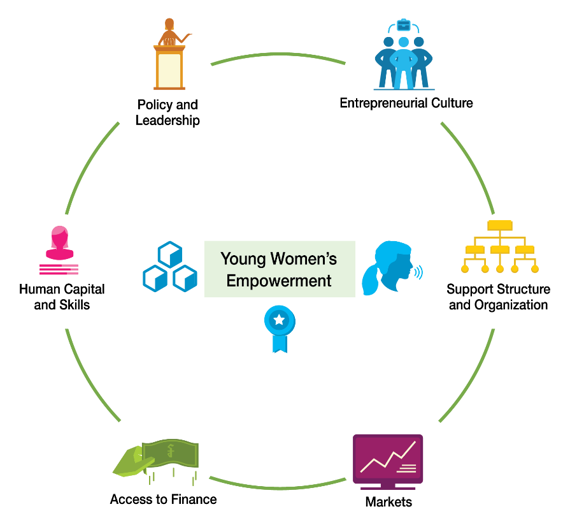Feb 26, 2020 | by Sabine Joukes, Pact

An entrepreneur in Cambodia displays her handmade jewelry.
In the 18 months since I moved to Cambodia to lead a new project to empower young women entrepreneurs, I’ve met countless inspiring business owners. One who comes immediately to mind is a woman who grew up an orphan with no family support and scant resources. Yet today she is the proud owner of a restaurant frequented by tourists and locals in Kampot. Along with her delicious cuisine, customers enjoy beautiful art that she sells. Hers is a story of triumph: She decided she wanted to be her own boss with her own income and independence, and she made it happen.
Hers is also the story of a woman who beat the odds. The National Institute of Statistics estimates that more than 60 percent of businesses in Cambodia are owned by women. Yet the vast majority employ only one or two people, earn far less than businesses owned by men, and remain informal, unregistered with the government.
This is because women entrepreneurs in Cambodia face their own unique set of challenges. The country’s tumultuous political history coupled with limited educational opportunities and slow economic recovery have made it difficult for women to attain the education they deserve. While the literacy rate among Cambodian men is 86 percent, for women it drops to 75 percent, according to UNESCO. There is also a strong traditional cultural expectation that women stay at home to look after family and household chores. It is challenging for women to even dream about having their own businesses, let alone grow them beyond boundaries set by family and community.
This is why, under the USAID-funded WE Act project, we began by listening. Women indicated needs including capacity strengthening, more relevant and inclusive networks and an encouraging policy environment. Today, WE Act is working with partners such as business associations, learning institutions and accelerators and incubators that understand these needs and have tailor-made activities to support them. This includes training on both business and soft skills, including how to be a stronger leader and make informed decisions in the family, in business and with authorities. All of this is linked to strong peer networks where young women feel understood and supported by like-minded, enthusiastic entrepreneurs. Our activities are focused not only on empowering women in business but also civically and societally, to build an environment for success. This includes incubators, accelerators and more inclusive business networks within which women are enabled to raise issues with decision-makers to change the status quo.
Every day, I am amazed by what women will do to make their businesses successful. They work tirelessly, absorb trainings, create innovative products and confront multiple challenges. They do many things on a shoestring budget, get creative and refuse to give up. With the right support and know-how, so much is possible.

WE Act works across domains with diverse organizations and companies to fill gaps and scale strengths.
This is what I am focusing on this International Women’s Day. I hope that with increased interest in the unique needs of young women entrepreneurs, and with partners committed to supporting them, including Cambodian government entities, we will soon see more tailored financial mechanisms flowing to women-owned businesses. We will see families and communities eager to support women entrepreneurs who are knowledgeable about their socio-economic rights. We will see their micro-businesses evolve into small businesses and beyond. With growing income, we will see these businesses contribute to better economic wellbeing for women, their families, their communities and Cambodia as a whole.
We will truly see women as the strong entrepreneurs they are, with their economic voice heard.
Sabine Joukes is Pact’s country director in Cambodia.
Categories: Livelihoods Women and Girls English Blog Womens Economic Empowerment Blog 2020 WebinarsBlogs

1621 North Kent Street, Ste 900,
Arlington, VA, 22209
P 202.534.1400
F 703.276.1433
Website Photos: © mari matsuri
